Want to know all about the Zero Waste lifestyle? Then you've come to the right place! Who preferably live sustainably If you want to live a waste-free life, you can't avoid reducing the amount of waste generated by your own lifestyle. But how exactly do you live as waste-free as possible? The people in the growing, environmentally friendly and waste-avoiding Zero Waste movement live it.
In this article, I would like to explain to you exactly what is behind the "Zero Waste" lifestyle - from the definition, benefits, rules and a useful basic equipment, to valuable tips for practical implementation in everyday life. Let's go!
Here you can find a short overview of the article in advance:
Definition: What is the Zero Waste movement?
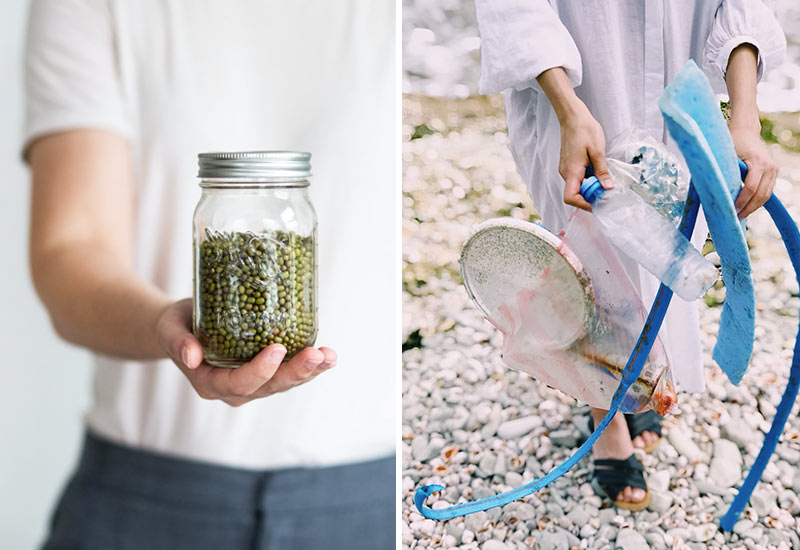
Zero Waste literally means "Zero garbage". The aim of the movement is, to produce no waste at all at some point with one's own way of life, in order to natural resources of the earth and preserve a clean planet for future generations.
So the idea is to prevent the waste from being created in the first place, so that nature, above all saved from the non-biodegradable plastic waste and you don't have to fetch it from the environment at a later date.
"Invented" the way of life was the American woman Bea Johnsonwho purposefully turned her life around to eventually produce only enough trash each year with her family of four to fit in a small jam jar. She is considered with her book Happy life without garbage* as a pioneer of the zero waste movement.
Where is the difference to a plastic free lifestyle? The Zero Waste movement also tries to avoid plastic waste, but generally any form of waste (so also food waste or electrical waste, for example).
Advantages: Why should you live "Zero Waste"?
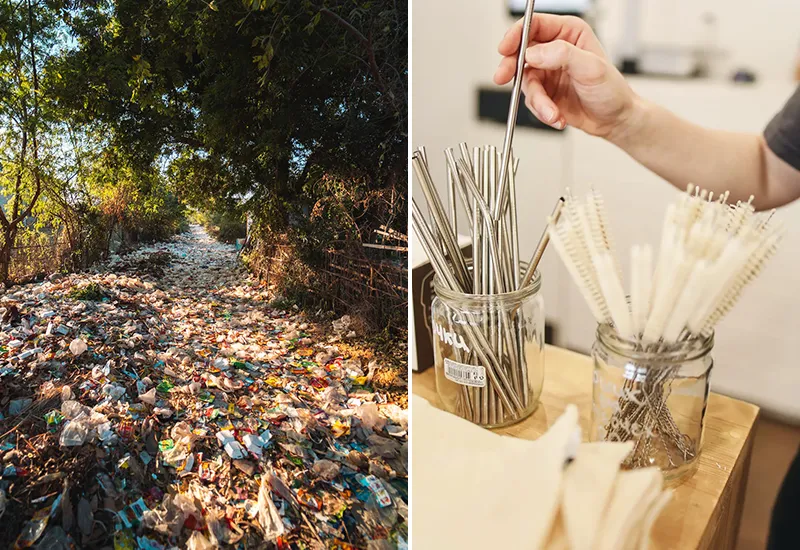
It takes people to lead the way! But for what reasons do we go in the direction in the first place? Before I present you the Zero Waste rules and tips for implementation, I would first like to give you the most important thing on the way: the necessary motivation for the Zero Waste lifestyle.
Why should you live waste-avoidant? These overriding reasons speak for a change in your lifestyle and the conscious avoidance of waste:
- Live more relaxed
- Save money
- Stay healthy
- Protect environment
- Protect animals
- Strengthen local economy
- Conserve resources
Of course, this is all quite easy to say. In the following, I would like to briefly explain the reasons again, so that they also motivate you in the long run.
Live more relaxed
Who consciously avoids waste, Lives easiermore mindful, positive, free and natural. This is my personal observation. One implements changes in life with full conviction, frees oneself from superfluous ballast and reduces one's own possessions over time to what is really necessary. The gained overview creates the pleasant feeling of relaxation.
In addition one will more confidentbecause you have to meet a major challenge, namely to get rid of old habits and adapt new ones, has successfully mastered.
Save money
With the Zero Waste lifestyle, you'll not only live a more relaxed life, you'll also have a lot more money in your wallet! This is mainly because you automatically also live more minimalistYou'll be able to spend more money on things that are indispensable to you.
Besides you can Save waste fees - and also your drinking water is much cheaper if you use the Tap water mineral water than packaged water. Particularly lucrative, however, is the replacement of disposable products that have to be bought over and over again with long-lasting products that can be reused forever. Reusable alternatives.
Tip: Break away from the idea that sustainability is expensive. Under almost all aspects can be save money through a sustainable lifestyle. In the linked article, I explain this advantage of the Zero Waste lifestyle in more detail.
Stay healthy
Those who buy loose and unpackaged consume Increased fresh products instead of packaged, processed finished products. In addition, by living a waste-avoidant lifestyle, people generally avoid contact with plastic packaging more often, which contains hazardous Plasticizersuch as bisphenol-A (BPA).
In addition, being a conscious consumer also has the effect of health challenges of our time, such as the Water shortage, the air pollution or the Microplastics in the sea, in the opposite direction. If only because fewer products and packaging are produced.
Protect environment
With the Zero Waste lifestyle you contribute to the solution of countless, further, ecological problems of our time with. For example, you help to improve the climate change as less CO2 is emitted in the production of goods and their packaging materials for you.
In addition, by reducing your own waste, you are helping the Pollution by plastic waste and other man-made waste.
Conserve resources
The conscious Resource conservation in your own everyday life protects our planet from being exploited by us humans for its raw materials, so that functioning ecosystems can be preserved and remain intact. The more people live as waste-free as possible, the better.
Good to know: The so-called Earth Overshoot Day - the day in the year on which we humans have consumed more renewable resources than the Earth can reproduce in the entire year - is thus moving ever closer to the end of the year.
Protect animals
Who consciously avoids waste, also protects the animals and does something for biodiversity on earth. On the one hand, because the already mentioned ecosystems in which they live remain intact. On the other hand, because they cannot perish from the plastic waste that lingers forever in nature.
Every year, according to NABU, the following die about one million seabirds and 135,000 marine mammals from the consequences of our throwaway mania.₁ For example, due to plastic in their stomachs or because they hang themselves in plastic nets and simply cannot get out of them.
Strengthen local economy
Living by Zero Waste promotes social interaction, drives the circular economy and creates new ones, sustainable jobs in the region. Packaging-free goods, for example, can be sourced preferentially at regional markets, thereby supporting the local economy and your personal living environment is promoted.
Tip: In the article "Why Zero Waste?" I'll go into a little more detail about the reasons and advantages. I've really only focused on the core motives here. This list could actually be sooo much longer. Feel free to write me a comment with your personal reasons for joining the Zero Waste movement.
Rules: What are the main principles of the Zero Waste lifestyle?
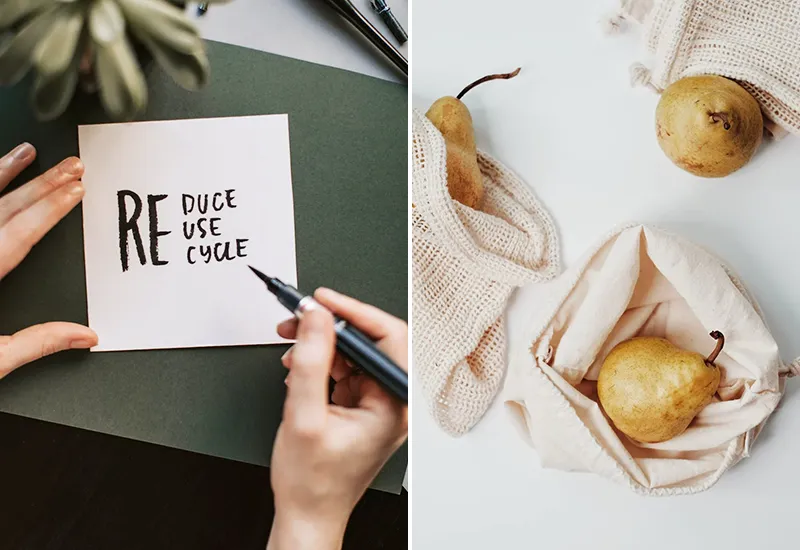
How to enjoy the above benefits now? Valuable rules of the Zero Waste lifestyle help decisively to get off to an ideal start in your waste avoidance project and to see it through in the long term..
"The best garbage is the garbage that doesn't get created in the first place."
Unknown (more under Zero Waste Quotes)
Over the years, existing principles have constantly evolved. Here I would like to introduce you to two of them, which you (especially as a Zero Waste beginner) can gladly adopt.
My personal 14 R's for the Zero Waste Lifestyle
Maybe you have heard about the 5 R's of Zero Waste heard? These supporting principles (refuse, reduce, reuse, recycle, rot) all begin with the letter "R" in the English language and are thus also easy to remember.
I have them for myself personally expanded to 14 (actually all starting with "R") rulesbecause I realized that the original five rules didn't cover all the Zero Waste possibilities. Here I would like to present them all to you:
#1 reduce
Reduce own consumption.
What things do you really need in your life? Nowadays, we are influenced by advertising everywhere and buy things we don't even need. A more minimalist lifestyle and the conscious reduction to the things you really need avoids waste and leads to more overview and clarity in life.
#2 reuse
Reuse things for as long as possible instead of throwing them away.
With disposable products like CoffeeToGo cups and disposable razors, you're not making anyone happy except the industry. Break out of the Disposable society and replace these disposable products with reusable alternatives that can be used forever. In addition, you should prefer second-hand goods whenever possible.
e.g. glass straw instead of plastic straw or buying a used but still high quality sweater
#3 rent
Borrowing things instead of buying new.
Another important basic rule is borrowing. By borrowing things, you save money in a sustainable way and don't have them lying unused in the corner of your room after two weeks. You borrow things when you need them and return them when you don't need them. Likewise, you lend some of the things in your possession to others yourself when you don't need them. This avoids waste and conserves natural resources.
e.g. using a car via car sharing or borrowing a suit instead of buying a new one
#4 redesign
Modify products so that they do not produce waste.
Countless products in drugstores, supermarkets or online stores could also get by with significantly less or no packaging waste. Many product manufacturers do not see this potential. That's why it's an important rule of the Zero Waste lifestyle to contact them by email, phone call or with Apps like Replace Plastic to draw attention to this. The more people do this, the more likely the goods will be adjusted.
e.g. conversion of a product packaging from plastic to paper.
#5 repair
Fix things instead of throwing them away.
In our society, many people tend to buy new when a product no longer works. This naturally creates a lot of waste. The more sustainable alternative is repair - either independently, in a Repair Café, with the help of friends and neighbors, or professionally in a workshop. Repairing is a very important principle for specifically avoiding waste.
e.g. repair washing machine, bicycle or smartphone
#6 rot
Compost excess scraps instead of disposing of them.
The goal of the Zero Waste lifestyle is to avoid waste. And what about the excess scraps of our food? In fact, you can use carrot greens, stale bread, radish leaves and countless other Still utilize food scraps.
But of course, this does not work with all foods. What is absolutely no longer usable, should therefore be properly composted to be made fertile soil on it. For example, with the compost pile in the garden or in the worm bin and bokashi bucket at home.
#7 replace
Replace the short-lived with the long-lived.
If you want to avoid waste, you should replace all disposable products and other short-lived, low-quality goods with durable, reusable, well-made alternatives. And do it little by little. The things you own, which have already been produced, should be used for as long as they serve you.
e.g. replace plastic bags with jute bags
#8 recycle
Recycle waste that is generated.
Your general goal should first be to make significantly less trash. That your lifestyle makes absolutely no waste is basically impossible. Unusable items that can no longer be reused, repaired or replaced (i.e. "precycled") should then be fed into the materials cycle and recycled in the most resource-conserving way possible.
#9 refuse
Saying no and rejecting offers.
I used to immediately accept things that were offered to me for free. Even if I didn't need them at all. In the spirit of the Zero Waste lifestyle, I do things differently today. I first ask myself: do I really need this? If the answer is "no," I decline with thanks. Because what you don't need quickly ends up in the trash.
e.g. reject flyers in the pedestrian zone or the Do not post advertising" sticker on the mailbox glue
#10 reach
Reaching out to each other and sharing things.
Whether it's among neighbors, friends, colleagues, or family, the Zero Waste lifestyle also means living together, helping each other out, and sharing things.
e.g. borrow drill or stepladder from neighbors
#11 remember
Remembering what you really need.
Are you about to make a purchase decision? Then remind yourself that and how you have managed without the respective product so far - and that you have consciously resolved to produce no more waste. Is it really vital and don't the other Zero Waste basic rules help? Only if this is the case, you should buy something new.
#12 refill
Refill products instead of buying them new and packaged.
Especially the packaging of cosmetics and household products leave behind waste every time they are used up. It is more environmentally friendly to have the old containers refilled and continue to use them. Many drugstores already offer suitable refill stations. In addition, countless cleaning products can be made and refilled yourself.
e.g. dental floss in refillable glass bottle
#13 reinvent
Upcycling things and making them yourself.
The so-called Upcycling also helps extremely with waste avoidance. Because even now unusable and unrepairable things, you can usually give a second life in another role. In addition, countless everyday items can also be made or built yourself.
e.g. make shopping bag from old t-shirt or Building dining table from old oak planks
#14 respect
Respect things, materials and production effort.
Those who act in the spirit of Zero Waste value the things they have and try to use them for as long as possible. You buy second hand more often and respect both the object and its material, as well as the effort that was necessary to make it. This attitude helps immensely to reduce waste in everyday life.
Notice: Not all rules have to make sense to you. Just decide for yourself which aspects are valuable for your personal development and your project.
The pyramid of sustainable consumption
Both the color choice and the structure of the sustainable consumption pyramid, should remind you of Maslow's pyramid of needs. The Zero Waste lifestyle has used its effective style to illustrate, how to make an environmentally friendly consumption decision.
And in this Order:
- Use what you have
- Fix what you have
- Borrow it
- Swap it
- Buy Second Hand
- Do it yourself
- Only then: Buy it new
By following this sequence in your potential, future purchasing decisions, you will guaranteed to buy less superfluous things and thus also produce less waste.
Basic equipment: What things make the Zero Waste lifestyle easier for me?
Some utensils are particularly good at helping to avoid waste in everyday life. There aren't many of them, but they make quite a difference. Here I have a list of the classic Zero Waste Basic Equipment and linked to you where you can get the corresponding item.
Drinking bottle
A reusable Stainless steel drinking bottle or glass you can get Fill up everywhere with tap water or other beverages and avoid plastic bottles.
This water bottle* has served me faithfully for many years.
Bottle brush
With a Bottle brush you can reach every spot in your water bottle to easily clean it. clean and reuse forever.
This bottle brush* I can recommend to you.
CoffeeToGo mug
Cardboard and plastic cups for coffee & co. especially clog the public trash cans in the cities. Why don't you just use a reusable alternative?
This reusable cup* works wonderfully.
Fruit and vegetable nets
Fruit and vegetable bags are the Zero Waste Alternative for the thin free plastic bags in the fruit and vegetable department.
These networks* I use myself.
Preserving jars
Preserving jars are the classics of the Zero Waste basic equipment. With them you can for example Buying, sorting or storing food without packaging.
These canning jars* belong in every waste-avoiding household.
Stainless steel lunch box and Oilcloths
Never again cling film or plastic bags for your meals! With a Stainless steel lunch box or eternally reusable Oilcloths you are well equipped.
This stainless steel lunch box* and these oilcloths* I can recommend to you.
Backpack and jute bag
So that you can Grocery shopping and other goods in everyday life without waste-producing bags and packaging, you should buy yourself a robust Backpack and get a jute bag that can be used forever.
This backpack from marine garbage* I use. And you can get jute bags at any organic or supermarket checkout.
Tips: How can you specifically avoid waste in everyday life?
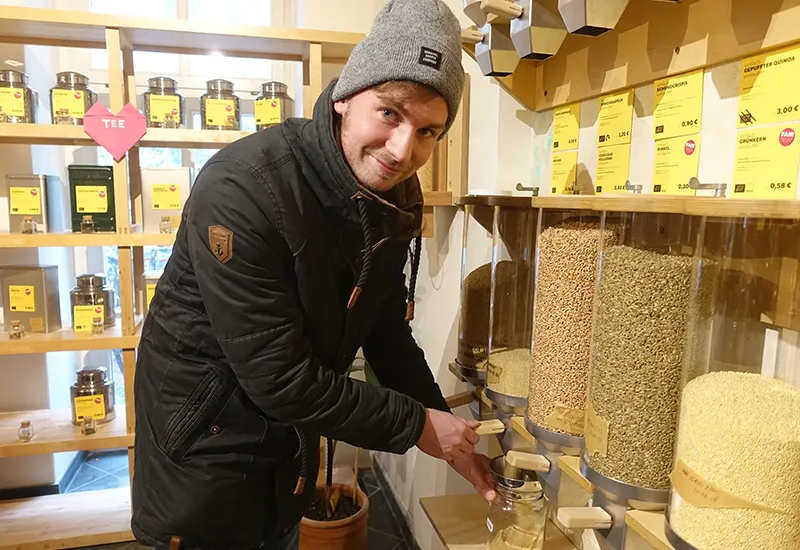
Some Tips for waste prevention you have already picked up up to this point. But it is important to me that you are also responsible for the classic everyday areas the best Zero Waste opportunities and opportunities to get started in the lifestyle as quickly and purposefully as possible and move from being a problem to being its solution.
"What we do today will determine what the world looks like tomorrow."
Marie von Ebner-Eschenbach
Here I would like to give you some tips to help you move from being part of the problem to being part of the solution.
Household
There is hardly any other area of our everyday life where the creation of waste can be prevented as well as in the household. You can, for example, with a Bar soap instead of showering with shampoo and shower gel from a plastic bottle. Or how about using your foaming Making dishwashing liquid from ivy itself, in order to avoid the Save packaging material from the drugstore?
Your options for making less waste are almost endless in the home. Here I have some Related Blog Articles where you can pick up more tips:
- Cleaning without garbage - The best tips
- Tips for a plastic free bathroom
- Sustainable dental care - The best tips
- Zero Waste in the kitchen
Purchasing
Once you start paying conscious attention to the waste your current lifestyle leaves behind, you'll realize that much of it is packaging waste created by your shopping habits.
Fortunately, there are a few ways you can tackle this problem:
- Buy food in bulk (e.g. with your cloth bags in the supermarket or organic market, in the unpacked store or simply at the weekly market at your place)
- Take your Tupperware to the deli counter: Fresh food can simply be filled into stainless steel containers at the respective counter. Many markets and smaller farm stores now offer this option.
- Prefer products in a jar: Whether it's cosmetics or food, if you have the option, you should choose the glass container over plastic packaging.
- Store second hand: Used goods are usually unpackaged. In addition, you save natural resources for the new purchase. So look more often in the second hand store or at eBay Classifieds over.
- Prefer plastic-free online stores: On the Internet, there are now also many suppliers who dispense with unnecessary packaging material and ship their goods without plastic.
Tip: Dem plastic-free shopping as much as possible I have dedicated a separate blog article. Feel free to take a look!
Free time
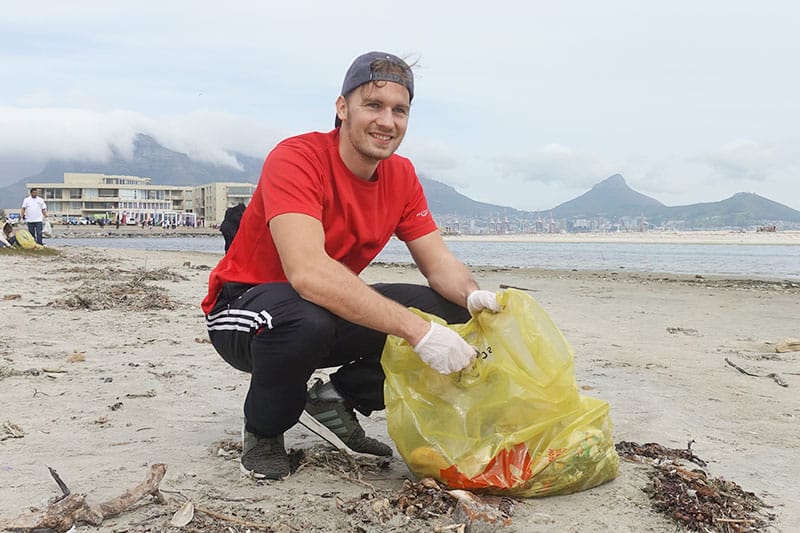
Of course, a consciously chosen lifestyle should not end with your leisure activities. I also have some tips that you can implement for less waste in everyday life:
- Organize or support CleanUp actions: To the good deeds in your everyday life could include regular cleanups. Join others in collecting trash from the environment or go for a round of Plogging. (Jogging and garbage collection combined)
- Zero Waste at the Festival: By having your own cup and water bottle or pre-cooked meals, for example, it is also possible to at the festival "Zero Waste to be on the road. There are even some events whose organizers consciously want to avoid waste!
- Collecting garbage on vacation: Also in the Vacation you can collect garbage! Just free a beach from the plastic waste and start a Beach CleanUp. Unfortunately, this is nowadays possible on almost every popular vacation beach.
- Zero Waste on the Road: Try with your next Travel consciously to avoid garbage. This works, for example, with your water bottle, lunch boxes and travel cutlery. You can use digital train tickets and prefer an environmentally friendly accommodation with zero waste philosophy.
Do you know of any other good zero waste leisure tips? Then feel free to share it with me and the community in the comments.
Inspiration and motivation
In addition to the practical tips, it is also important that you always remember the benefits of the waste-avoiding lifestyle, give yourself more, learn new lifehacks and stay informed at all times. Through your own creativity and motivation, the inspiration from the Zero Waste Blog and useful books and magazines, you will manage to stay on the ball permanently.
Below you can see some books that I can recommend to you. The Book plastic free for beginners I even wrote it myself. If you like, you can download it order directly here*.
What is Zero Waste?
Zero Waste is a way of life that avoids waste. Those who live according to the associated principle try to produce no more waste with their own lifestyle over time.
Why should you live according to the Zero Waste principle?
Many people live "zero waste" in order to reduce the natural resources of the earth and to preserve a clean planet for future generations. In addition to ecological motives, many people are also driven by ethical and financial reasons to avoid waste.
Is a life without garbage possible?
It's hard to imagine a life that's truly without garbage. Nevertheless, some zero waste pioneers manage to put their waste for an entire year into a tiny canning jar. The important thing is to view the word "zero" as a long-term goal and not let it scare you off. The less trash you produce in your everyday life, the better.
The Zero Waste lifestyle in the fight against waste of resources and waste in the environment
After decades of only being able to Advantages of the plastic and the throwaway society in general, we are now getting - among other things with the unmistakable plastic garbage in the environment. - feeling the downside. The Zero Waste lifestyle shifts down a few gears and promotes a more conscious use of the natural resources of the only planet available to us, as well as our children and grandchildren.
I really hope that I could bring you closer to the topic of Zero Waste with this article. Finally, I would like to give you here some suitable, further articles that might be interesting for you:
- Zero Waste for Beginners
- Prejudices against Zero Waste
- Zero Waste Camping Tips
- Wedding avoiding waste
Do you have any questions, comments or further tips for implementing the waste-avoiding lifestyle? Then I look forward to your comment!
Stay clean,

PS: One of my first blog articles was Plastic free living - tips & tricks. Over the years, the number of useful tips in it has increased significantly. Feel free to look inside now to grab even more tips on how to avoid waste. Good luck with the implementation!
References:
₁ Naturschutzbund Deutschland e.V. (NABU): Plastic waste and its consequences. https://t1p.de/tykc. [13.01.2023].

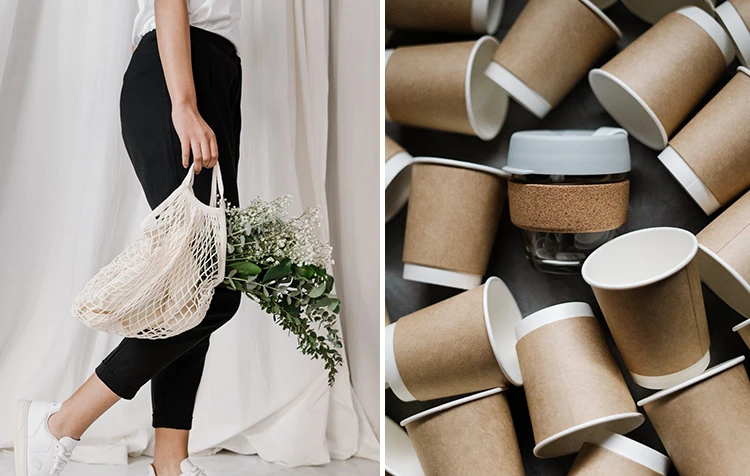
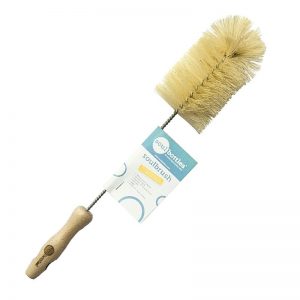
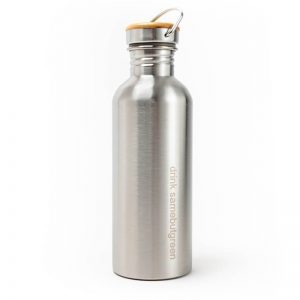
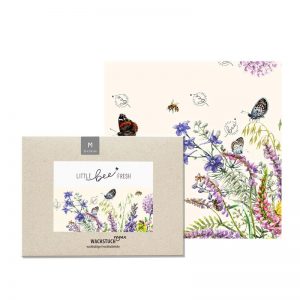
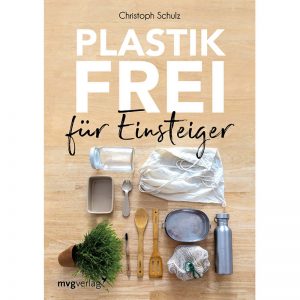
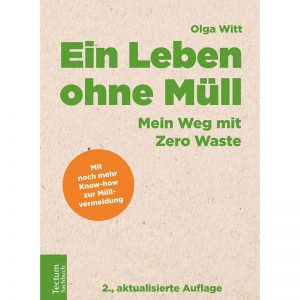
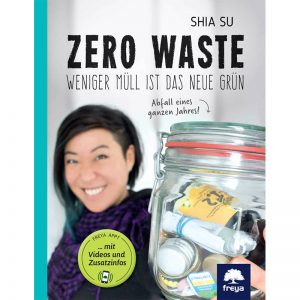




I think buying or sharing used books is good in principle, but we also have to think of the authors, who often live poorly on royalties.
Hi Anna! You are also right! But somewhere we have to give in a little bit. Authors can also publish additional e-books, which also waste few natural resources. Either way a good point from you.
Stay clean,
Christoph
The first thing that comes to mind when I think about borrowing is the good old library. In addition to books, you can also borrow magazines, DVDs/Blu-rays and CDs. Some even offer board games, and the range of books on offer is also very extensive, at least in the larger libraries. They are also much cheaper than any other portal I know.
Have a great week,
warm greetings
Janina
Hi Janina, thanks for your helpful comment! How could I have forgotten the library? 😉
There you can see that loan concepts have always existed, but they gradually gathered a bit of dust and are now coming back to life.
But that may just be my personal impression.
Many greetings
Christoph
The baking mats themselves are ne good idea - but they are made of silicone ... also not exactly harmless. Maybe you can find something better ...
And: there are teapots made of glass with filter insert ... also a good way to prepare tea.
LG
Hi Karin, thanks for your comment, great idea! I'll try to implement it on the blog right away 🙂
Have a nice week.
Many greetings,
Christoph
Comments are closed.